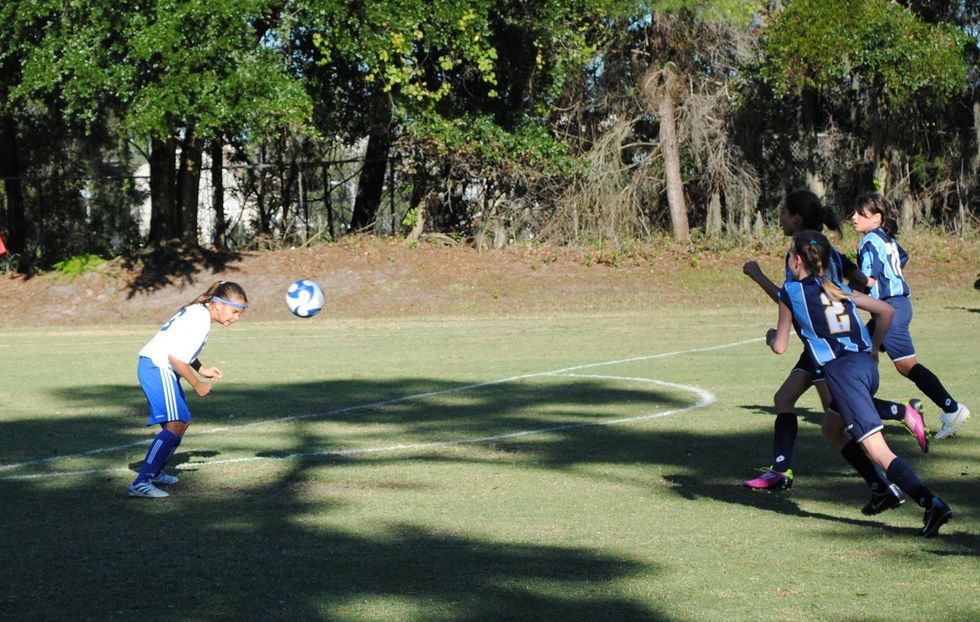A soccer match in October of 2017 ended up throwing a good chunk of my junior year into a monumental whirlwind of insanity. And it all started with using my head.
An hour after a punt from the opposing goal tender struck my head, I was lying in a hospital gurney with an IV pumping fluids into my arm. I don't remember how it got there, or why I happened to develop a stutter when I talked. It made me feel angry, like my own body was rejecting me. Why was a girl in four AP courses suddenly stuttering? A doctor soon walked up to my bedside and informed me that I had suffered a concussion during my soccer match and that the symptoms should go away within the next week. His information made me remember at the time a past concussion I suffered about a year ago. The throbbing head pain immediately rushed into my mind, but other than that I assumed that the injury would only result in a week of missed school and popping a few pain pills.
I couldn't have been more wrong.
The following week after the injury, I was able to return to school. The embarrassing stutter the doctor promised would go away followed me to class. The reaction from my peers is what I remember the most about the experience. Fellow AP scholars swimming alongside me through the halls, the cafeteria, gazed upon me as if I didn't belong in an AP classroom anymore.
It humiliated me.
A third trip to the neurologist diagnosed me with Post-Concussion Syndrome (PCS), a sign that the symptoms of the concussion could potentially be with me for my whole life. The next few months following this diagnosis seemed to be a test to see how long I could last until I reached my breaking point. My mind was beginning to shed its motivation it once showed off as an achievement. The lack of concentration knitted into my AP courses. The depression, the random panic attacks and anxiety, it all forced me to withdraw from my soccer team for good. The situation really ultimately hit me when the neurologist said that going back to my dearly beloved sport would bring huge risks to my brain. Risks that could potentially give me permanent, unmanageable symptoms. It was unbearable to realize that the one thing that I thought defined me was suddenly pulled out from under my feet like some twisted, sickening magic trick.
But a conversation with my mother flipped my fate like a switch.
She told me to consider my syndrome as a challenge. She told me that if I didn't fight back with my determined mindset that it was going to win control over me completely. She told me that if there was any chance of me going to college, I had to fight these symptoms with positivity.
For the next four months I played this game with my hefty PCS competitor. Throughout this period, my determination and willingness to succeed in everything I intended to accomplish unleashed itself in all of my tests and assignments. The condition seemed to strengthen my hard-working attitude. Sure, there were days when my character was still being tested, but I have learned through months of experience how to fight back with my passion for learning and my keen sense of honorability.
By climbing a mountain as big as Post-Concussion Syndrome, I have not only become a better human being in the long run, but I have learned that flourishing in my scholarly character is the ultimate strategy when facing a challenge.Truth be told, your noggin is your greatest asset. Use it wisely, and you'll go far.

















